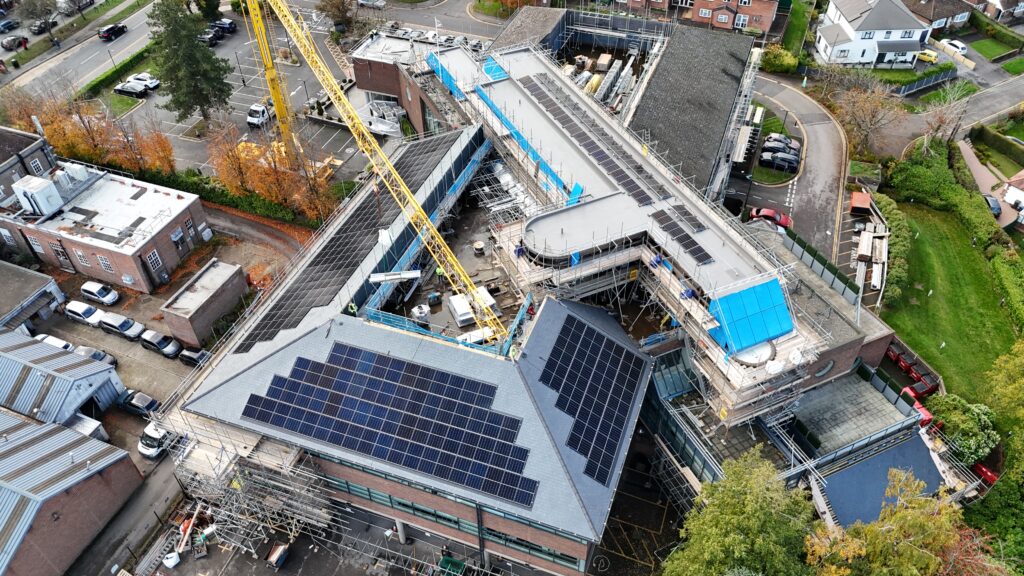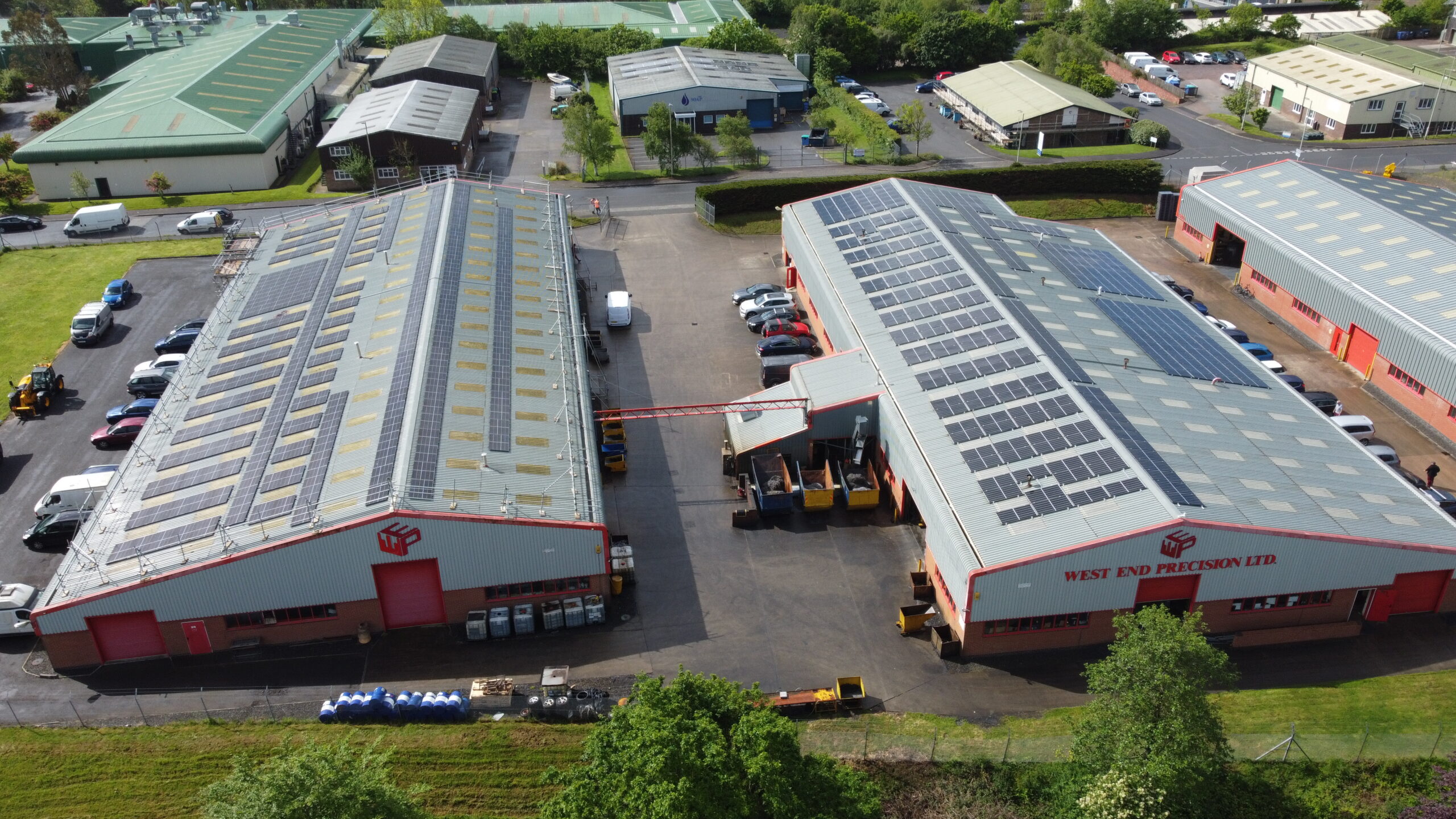Imagine lowering your business’s energy bills while improving sustainability performance. That is the power of solar energy: clean, renewable electricity that helps companies to cut costs and meet environmental goals. Yet, like any major investment, it is important to understand both the advantages and disadvantages of solar energy before making the switch. Across the UK, many organisations are exploring solar to manage energy costs and reduce reliance on fossil fuels. However, successful adoption starts with knowledge. By understanding the advantages and disadvantages of solar energy, businesses can make informed, strategic decisions that align with financial and sustainability objectives.
The advantages of solar energy for businesses
1. Significant cost savings
Among the most appealing advantages of solar energy is its ability to lower electricity bills. By generating power on-site, businesses reduce reliance on the National Grid and shield themselves from fluctuating energy prices. Commercial solar systems can save thousands of pounds each year, with return-on-investment periods typically ranging from five to eight years (and even less in some cases). These savings continue long after the system has paid for itself, providing long-term protection against rising energy costs.
2. Lower carbon footprint and sustainability gains
Another clear advantage of solar energy is its environmental impact. Solar power produces clean, renewable electricity without releasing harmful greenhouse gases. Every kilowatt generated helps offset fossil fuel use and reduces your organisation’s overall carbon footprint. For companies committed to achieving Net Zero targets or strengthening corporate social responsibility, solar energy offers one of the most effective and measurable routes to sustainable improvement. Demonstrating environmental leadership also enhances brand reputation and appeals to eco-conscious customers, investors, and employees.
3. Energy independence and security
Energy resilience is a growing priority for UK businesses. One of the strongest advantages of solar energy is the ability to generate power independently from the grid. When paired with battery storage, businesses can store excess power for later use, improving reliability and reducing exposure to supply disruptions or price volatility. This energy independence helps maintain operational stability, especially for industries requiring continuous power.
4. Enhanced corporate image and market advantage
Investing in renewable energy demonstrates forward-thinking leadership. Among the often-overlooked advantages of solar energy is its ability to enhance corporate image and strengthen relationships with key stakeholders. Companies adopting solar are seen as progressive, sustainable, and responsible. This credibility can create competitive advantages, attract new clients, and strengthen tender opportunities with organisations that prioritise sustainable supply chains.
5. Scalability and integration with emerging technologies
A practical advantage of solar energy for commercial users is scalability. Systems can be designed to match energy demands and expanded as operations grow. Modern solar solutions also integrate seamlessly with battery storage and electric vehicle (EV) charging infrastructure. This allows businesses to extend the value of their investment and support broader decarbonisation efforts, such as fleet electrification or peak-demand management.

The disadvantages of solar energy for businesses
1. Upfront investment costs
One of the most significant disadvantages of solar energy is the initial installation cost. Purchasing and fitting commercial solar panels, inverters, and mounting systems requires capital investment. However, these costs should be viewed through a long-term lens. Solar installations immediately begin generating savings, offsetting initial expenditure. Here at Harvest Green Developments, we help businesses access funding opportunities and capital allowances that make installations more accessible and financially viable, and we can discuss asset finance and PPA options to remove the upfront cost.
2. Space and structural suitability
Another potential disadvantage of solar energy relates to available space. Solar systems require suitable roof or ground areas to generate adequate power. Older or structurally limited buildings may need reinforcement before installation, which can increase costs. A professional feasibility assessment – something our engineers provide as standard – ensures your building is suitable for a safe and efficient installation. The good news is that if roofing works are required, we can look into combining solar installations with roofing work, which will save you money by combining the projects. We’re currently working as a principal contractor for a large pharmaceutical client, where solar is only a small part of the roofing project (see above image), and they have provided excellent feedback about the seamless journey of trusting one company to manage the large scope of work across multiple areas of the building.
3. Weather dependence and seasonal variation
Solar systems perform best in direct sunlight, so one of the natural disadvantages of solar energy is its dependence on weather conditions. While modern technology allows panels to generate power even in cloudy weather, output is reduced during the darker winter months. Additionally, solar panels do not produce energy at night, meaning businesses may still rely on stored power or the grid. Pairing solar with battery storage significantly reduces this limitation and supports year-round energy reliability.
4. Planning and regulatory requirements
Certain commercial properties may face planning or grid connection challenges, particularly in conservation areas or listed buildings. These regulatory factors can extend timelines, representing a minor disadvantage of solar energy in some cases. The good news is that we manage every aspect of the process, from permissions and design to connection and compliance, ensuring each system meets all relevant standards and legal requirements.
5. Maintenance and long-term performance
Solar panels require little maintenance, but another minor disadvantage of solar energy is the need for periodic cleaning and inspection. This ensures optimal performance and prevents energy loss from dirt or debris. Over time, panels experience a gradual efficiency reduction of around 0.5% per year. However, even after 25–30 years, most systems continue to produce energy effectively, offering impressive durability and value. We offer two years of maintenance as standard, with optional extras of extending this cover and solar cleaning services.
Balancing the advantages and disadvantages of solar energy
Understanding the advantages and disadvantages of solar energy allows business leaders to make informed decisions. While upfront investment and space requirements can present challenges, the long-term financial and environmental benefits are substantial. For most UK businesses, the advantages of solar energy – cost savings, energy independence, and sustainability – far outweigh the drawbacks. With careful planning and expert installation, solar systems deliver reliable, long-term returns that support both profitability and environmental goals.
Is solar energy right for your organisation?
Every commercial site is unique. The suitability of solar depends on your roof space, energy profile, and sustainability targets. Conducting a professional feasibility study helps clarify whether the advantages and disadvantages of solar energy align with your business objectives. We are proud to provide education-led guidance and tailored system designs. Our engineers and consultants work closely with each client to ensure installations maximise efficiency, meet regulatory standards, and deliver strong financial outcomes with health and safety remaining top of mind every step of the way.
Partner with Harvest Green Developments
Exploring solar energy could be one of the most strategic moves your business makes. By understanding the advantages and disadvantages of solar energy, you can make confident decisions that deliver lasting value. Our expert team will assess your site, model your energy generation potential, and help you build a pathway toward energy independence.
Speak with us today to discover how solar energy can help your organisation save money, reduce carbon emissions, and future-proof its energy strategy.
